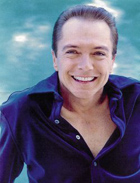
Das Freizeit Magazin
October 12, 1972
This is a German Language magazine.
In the sandpit
Adolescent pop music performers have triggered the biggest star hype since the Beatles mystery. The entertainment and consumer goods industry benefits from her "Teenbeat" singsong.
For seven days and nights, the guests of the London "Churchill" hotel hardly slept an eye. They suffered from the screaming, screaming and sobbing of about a thousand teenagers who besieged the hotel around the clock.
In November, two American beat groups had stayed at the Churchill, whose pubescent "teen beat" in England and the USA has recently been the unrestrained enthusiasm of six- to sixteen-year-olds: the "Osmonds"; a family ensemble from the US state of Utah, and the (coloured) quintet of brothers »Jackson Five« from Indiana.
The ten boys' choir of Heintje's age are currently emitting the latest craze in pop music. They squawk about "Lonely Boy" and "Puppy Love"; they elicit sunny pop harmonies from their instruments and offer a precisely drilled glamour show on stage. With this gymnastics and their soprano voices, they have triggered the biggest star hype since the Beatles hysteria -- much to the benefit of the entertainment industry.
With 13 "Golden Records" (industry jargon for more than a million dollars in sales or a circulation of one million singles) and on tour, the Osmonds earned around 60 million marks in two years. The Jacksons, who bring in up to $100,000 on a typical concert evening, earned nearly as much.
For years, since the Beatles uni turned from puerile screamers into rock artists in 1965, it was mainly advanced electronic bands that set the tone on the Best stage. For the young fans, however, the improvisations and sound collages of the progressives soon became too demanding. The youngest had no fun with their older siblings' record player.
That's why the music and entertainment industry has now revived the "bubblegum business" with teenagers, who have about $20 billion in pocket money this year in the U.S. alone, which has been neglected for years. Fan magazines such as "Star", "Faye", "Flip" and "Tiger Beat" with a total US circulation of two million copies, as well as the English magazine "Jackie", which is printed one million times a week, advertise a new commodity to young buyers: the teenage idol of the same age.
At "Star" in Los Angeles (circulation: 250,000), for example, the two editors invent new stories every month about the teenage singer David Cassidy, 22, who became famous in the TV series "The Partridge Family" and plays a sixteen-year-old on television. At most in half of these stories. admits "Star" editor Nancy Hardwick, "there is somehow a spark of truth".
The effect of fairy tales (headings: "Take a shower with David"; "Be kind to David") leaves nothing to be desired. When a magazine recently auctioned off a discarded stage costume by Cassidy against cut-out paper stars, 10,000 shipments, some with more than 200,000 stars, fluttered into the editorial office. When another magazine had a tape monologue by 14-year-old Donny Osmond reeled off by telephone about "my childhood experiences in the sandbox," Hollywood's telephone network collapsed -- with several thousand calls a day.
An entire industry has emerged that feeds on the popularity of Cassidy, the Osmonds and the Jackson Five. Posters« pillows. Underwear and hundreds of different consumer goods bear her image or her name. The turnover of industrial products. from which these three leaders of the teen beat cult collect licenses, the New York Wall Street Journal estimates for 1972 at almost 200 million marks.
Psychologists such as the Californian psychiatry professor Joseph Teicher claim that the teenagers stimulated their erotic imagination with such star fetishes ("To sleep on a pillow with the portrait of Cassidy is to sleep with him"). However, the identification image of the mini-stars offers little cause for sexual aberrations.
Because unlike the Rolling Stones, the show masochist Alice Cooper and other bad boys of rock music, the new idols are trimmed by "their managers to the morals of "Clean America", to the terms "nice, clean, decent and obedient".
"My son Donny," explains the head of the family, George Osmond, for example, "will not meet any girl until he is 18; I'll see to that." The former real estate agent from Ogden in Utah, a member of the Mormon sect, also makes sure that his nine children do not drink, smoke, hunt or "lead a Christian lifestyle in any other way."
Thousands of young girls, the Osmonds boast, have already converted them to the right faith by their example and the power of their singing. In the process, the family ensemble transforms. whose show business transformation once began in California's Disneyland amusement park, gradually transformed the international pop music scene into a plastic world equipped with sound and feeling templates.
In Germany, too, the young audience is already being changed by the entertainment makers to the lucrative teen beat. Last Saturday, for example, the Bremen TV editor Michael Leckebusch dedicated 45 minutes to the Osmonds -- the entire airtime -- in his formerly progressive "Beat Club" (which will in future be called the "music store" in a commercially modified way).
